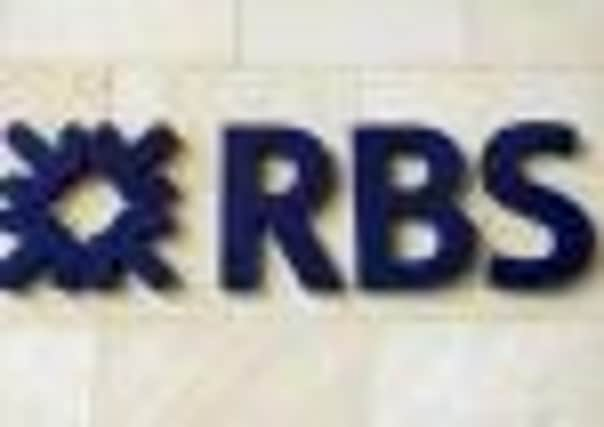RBS to start sale of taxpayers’ bank share in 2014


Prime Minister David Cameron’s official spokesman said no timetable had been set for selling off the taxpayer’s share in the bank. But RBS chairman Sir Philip Hampton said a potential share sale starting in 2014 was “a reasonable aspiration, a reasonable target”.
Sir Philip said the timeframe was possible if the bank’s trading performance continued to improve alongside a gradually improving UK economic backdrop, and RBS continued to clean up any “legacy issues” from previous management.
Advertisement
Hide AdAdvertisement
Hide AdRBS plunged into the red by £5.2 billion in 2012, and has now racked up five years of losses since being bailed out by the taxpayer at the height of the financial crisis.
Bosses said improvements in the core bank would see it return to financial health next year, paving the way for the government to start offloading its 81 per cent stake in what would come as a well-timed pre-election boost.
However, the group was criticised for handing out hefty bonuses after recent reputational blows, including its £381 million settlement for attempting to rig interbank lending rates, mis-selling scandals and last year’s IT meltdown that left millions of customers without access to their bank accounts.
The part-nationalised lender yesterday revealed a £607m bonus haul for staff, including £215m for investment bankers, despite last year’s heavy loss.
Sir Philip said that, as well as giving the coalition government the option to sell its stake, the bank wanted all shareholders “to receive a dividend, if only a token dividend, as soon as possible”.
Group chief executive Stephen Hester, meanwhile, said: “I think RBS will be ready to be privatised within the next couple of years – when the government decides to do it is a matter for them.”
Such timing would potentially allow the government to give shares in the bank to voters in the run-up to the 2015 election. The idea has been pushed by the Liberal Democrats and not ruled out by their Tory coalition partners.
But Labour Treasury spokesman Chris Leslie said: “We need radical change in the culture of our banks, and that must include reining in bloated bonuses, which are a device for keeping traders focused on the weeks ahead, rather than years ahead.”
Advertisement
Hide AdAdvertisement
Hide AdHe added the return of RBS to the private sector must “not be driven by George Osborne’s short-term political timetables”.
Despite deeper “headline” losses after special provisions at RBS – up to £5.2bn in 2012 from £1.2bn in 2011 – the Chancellor yesterday hailed the bank’s continued streamlining and underlying profits rebound.
This included news that RBS plans to float about 25 per cent of its Citizens US retail arm on Wall Street in around two years’ time to bolster its balance sheet, and to reduce further its riskier investment banking activities.
RBS also revealed it is to float more than 300 branches on the UK stock market after failing to clinch a sale to a trade buyer last year, which was ordered by the European Commission.
Mr Osborne said: “I have been very clear that I want to see RBS as a British-based bank, focused on serving British businesses and consumers, with a smaller international investment bank to support that activity rather than to rival it. I welcome RBS’s announcement today to accelerate that strategy.”
But RBS also fuelled anger by revealing the multi-million-pound bonus pot for staff in 2012, despite what Mr Hester branded a “chastening year” that included heavy fines for the Libor rate-rigging scandal and mis-selling controversies.
RBS said it had to set aside a further £450m to compensate customers who were mis-sold payment protection insurance, taking its total hit for the scandal to £2.2bn.
The bank has also set aside £700m to compensate small businesses which were mis-sold complex hedging products.
Advertisement
Hide AdAdvertisement
Hide AdSir Philip said he accepted banking bonuses were a “difficult” subject, but RBS payouts were at the low end of the industry range. Overall, payouts are down 23 per cent from 2011.
Mr Hester has already waived any bonus for last year as a result of the computer breakdown that affected millions of customers last summer.
He said he believed 2013 would be the last of five years of major restructuring at RBS, which has seen £900bn of assets slashed from its balance sheet.
On the outlook for 2013, RBS said: “We expect the economic and regulatory challenges present in 2011 and 2012 to continue into 2013.”
lLloyds Banking Group, owner of Bank of Scotland and Scottish Widows, is expected to announce another massive hit for mis-selling payment protection policies when it puts out its annual results today.